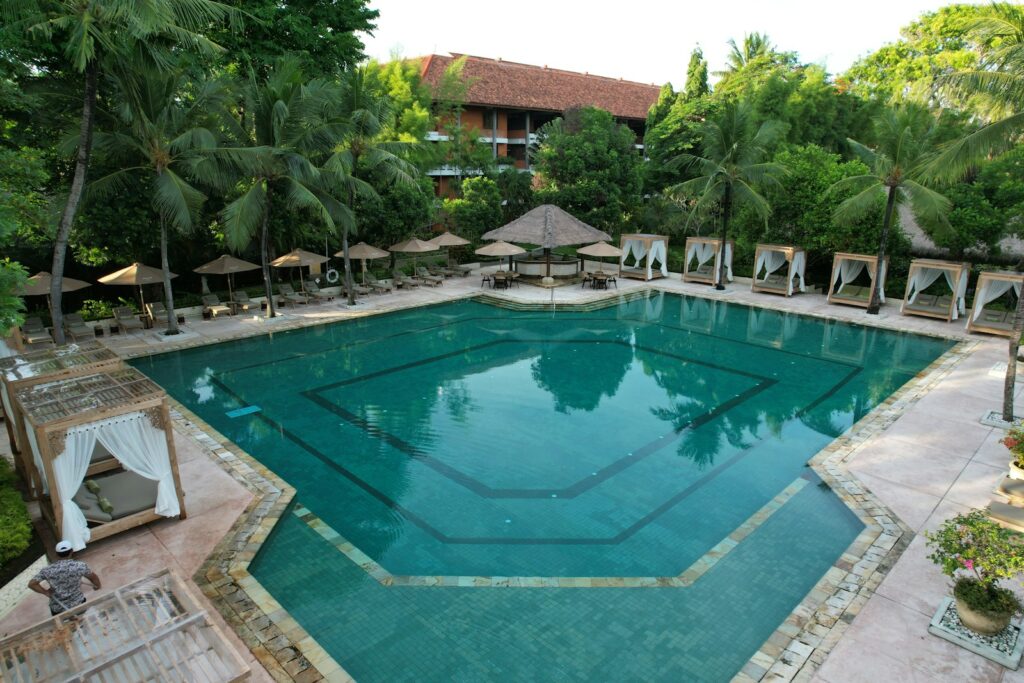Discovering the Allure of All-Inclusive Resorts
For many, the idea of an all-inclusive resort paints a picture of relaxation, luxury, and endless indulgence. From pristine beaches and gourmet dining to exciting activities and entertainment, these resorts offer a hassle-free vacation experience that appeals to a wide range of travelers. Whether you’re a budget-conscious traveler, a luxury vacation seeker, or simply someone looking to escape the everyday hustle, all-inclusive resorts have something to offer.
But how do these enticing havens work from a business perspective? For the curious traveler interested in both leisure and business, understanding the inner workings of all-inclusive resorts can offer valuable insights. This blog post will explore how these resorts operate, focusing on the financial mechanisms that keep them thriving.
The Business Model of All-Inclusive Resorts
At the heart of every all-inclusive resort lies a unique business model designed to bring in revenue while providing exceptional value to guests. Unlike traditional hotels where guests pay for each amenity separately, all-inclusive resorts bundle accommodations, meals, drinks, and selected activities into a single upfront cost. This model simplifies the vacation planning process for guests and guarantees the resort a steady stream of revenue.
All-inclusive resorts bank on volume, aiming to attract as many guests as possible by offering competitive pricing and comprehensive packages. With this approach, they capitalize on guests’ willingness to pay a flat rate for a worry-free experience. Additionally, the prepaid nature of these packages encourages guests to explore and enjoy everything the resort offers, thus increasing overall guest satisfaction.
By ensuring a high occupancy rate and minimizing variable costs, all-inclusive resorts can achieve profitability. But how exactly do they generate income? Let’s uncover the key revenue streams that contribute to their financial success.
Key Revenue Streams for All-Inclusive Resorts
Room Rates and Occupancy
Room rates form the backbone of any resort’s revenue structure. All-inclusive resorts offer various room categories, each with different pricing based on factors like size, view, and location within the resort. By catering to diverse preferences and budgets, resorts maximize their appeal to a broader audience.
To maintain profitability, resorts aim for high occupancy rates year-round. They achieve this by offering attractive packages during off-peak seasons and promoting special deals or discounts. Maintaining a steady influx of guests ensures a continuous flow of income, even when regular rates are lower.
Additional Services and Upgrades
While room rates cover many amenities, all-inclusive resorts often offer additional services and upgrades for an extra fee. These might include premium dining experiences, spa treatments, private excursions, and more. By providing these add-ons, resorts can cater to guests seeking an elevated experience while boosting their revenue.
Guests are often willing to pay for exclusive experiences, especially when they perceive added value. By strategically upselling these services, all-inclusive resorts enhance the overall guest experience and increase their profit margins.
Partnerships and Collaborations
All-inclusive resorts frequently collaborate with local businesses and tour operators to offer guests unique experiences beyond the resort’s boundaries. These partnerships create mutual benefits—resorts provide guests with curated excursions, while local businesses gain exposure and increased patronage.
Additionally, some resorts partner with international brands for joint marketing ventures or sponsorships. Such collaborations enhance the resort’s reputation and appeal while generating additional revenue streams through brand promotions and co-branded events.
Understanding the Cost Structure of All-Inclusive Resorts
Operational Costs and Efficiency
Running an all-inclusive resort involves significant operational costs, including staffing, maintenance, utilities, and food and beverage expenses. To manage costs effectively, resorts prioritize efficiency and optimize resource allocation. For instance, resorts often negotiate bulk deals with suppliers to reduce expenses related to food and drink.
By streamlining operations and maintaining high-quality standards, resorts can control costs without compromising guest experiences. Efficient cost management is crucial in ensuring that revenue generated from room rates and other services translates into profitability.
Guest Amenities and Experience
Providing a memorable guest experience is at the core of an all-inclusive resort’s success. This requires investing in top-notch facilities, entertainment, and activities. From sprawling pools and sports facilities to live shows and cultural events, these amenities enhance the resort’s appeal and encourage longer stays.
Resorts also focus on personalized services, such as concierge assistance and tailored itineraries, to enhance guest satisfaction. Happy guests are more likely to return, recommend the resort to others, and provide positive reviews, contributing to sustained business growth.
Balancing Quality and Cost
Balancing quality and cost is a constant challenge for all-inclusive resorts. While cutting corners may reduce expenses in the short term, it can negatively impact guest satisfaction and lead to long-term losses. Therefore, resorts must strike a delicate balance between delivering exceptional experiences and managing costs effectively.
Continuous evaluation of guest feedback, industry trends, and competitor offerings helps resorts identify areas for improvement and opportunities to enhance value. By staying attuned to market demands, all-inclusive resorts can adapt their services to meet guest expectations while maintaining financial viability.
Challenges and Opportunities in the All-Inclusive Resort Industry
Navigating Competition
The all-inclusive resort industry is highly competitive, with numerous players vying for guests’ attention. To stand out, resorts must differentiate themselves through unique offerings, exceptional service, and innovative experiences. Effective marketing and branding play a critical role in attracting travelers and establishing a competitive edge.
Understanding target audiences and tailoring marketing efforts accordingly is essential. Resorts that effectively communicate their unique value propositions are more likely to capture the interest of potential guests and drive bookings.
Consumer Trends and Preferences
Consumer preferences are continually evolving, and all-inclusive resorts must stay agile to meet changing demands. In recent years, there has been a growing emphasis on sustainable and responsible travel. Resorts that adopt eco-friendly practices, support local communities, and promote cultural awareness can appeal to socially conscious travelers.
Additionally, the rise of experiential travel has led to increased demand for authentic and immersive experiences. Resorts that incorporate local culture, cuisine, and activities into their offerings can tap into this trend and attract discerning travelers seeking meaningful connections.
Adapting to Technological Advancements
Technology plays an increasingly vital role in enhancing guest experiences and operational efficiency. All-inclusive resorts leverage technology to streamline check-in processes, offer mobile apps for seamless communication, and provide virtual tours or augmented reality experiences.
AI-powered analytics and data-driven insights help resorts tailor their offerings to individual preferences, creating personalized experiences for guests. By harnessing the power of technology, all-inclusive resorts can remain competitive and deliver exceptional value to travelers.
The Future of All-Inclusive Resorts and Their Value to Travelers
All-inclusive resorts continue to evolve, offering diverse experiences that cater to various traveler preferences. By providing convenience, affordability, and a wealth of amenities, these resorts remain an attractive option for vacationers seeking stress-free getaways.
The future of all-inclusive resorts lies in their ability to adapt to changing consumer expectations and industry dynamics. Those that successfully balance quality, cost, and innovation are poised to thrive in the competitive landscape.
For travelers, all-inclusive resorts offer a compelling value proposition—a chance to relax, explore, and indulge without the hassle of managing individual expenses. Whether you’re a budget traveler seeking affordability or a luxury seeker desiring opulence, all-inclusive resorts promise an unforgettable escape.
To further explore the world of all-inclusive resorts and discover the perfect destination for your next vacation, consider consulting travel experts or visiting industry-leading websites for up-to-date information and recommendations.
























